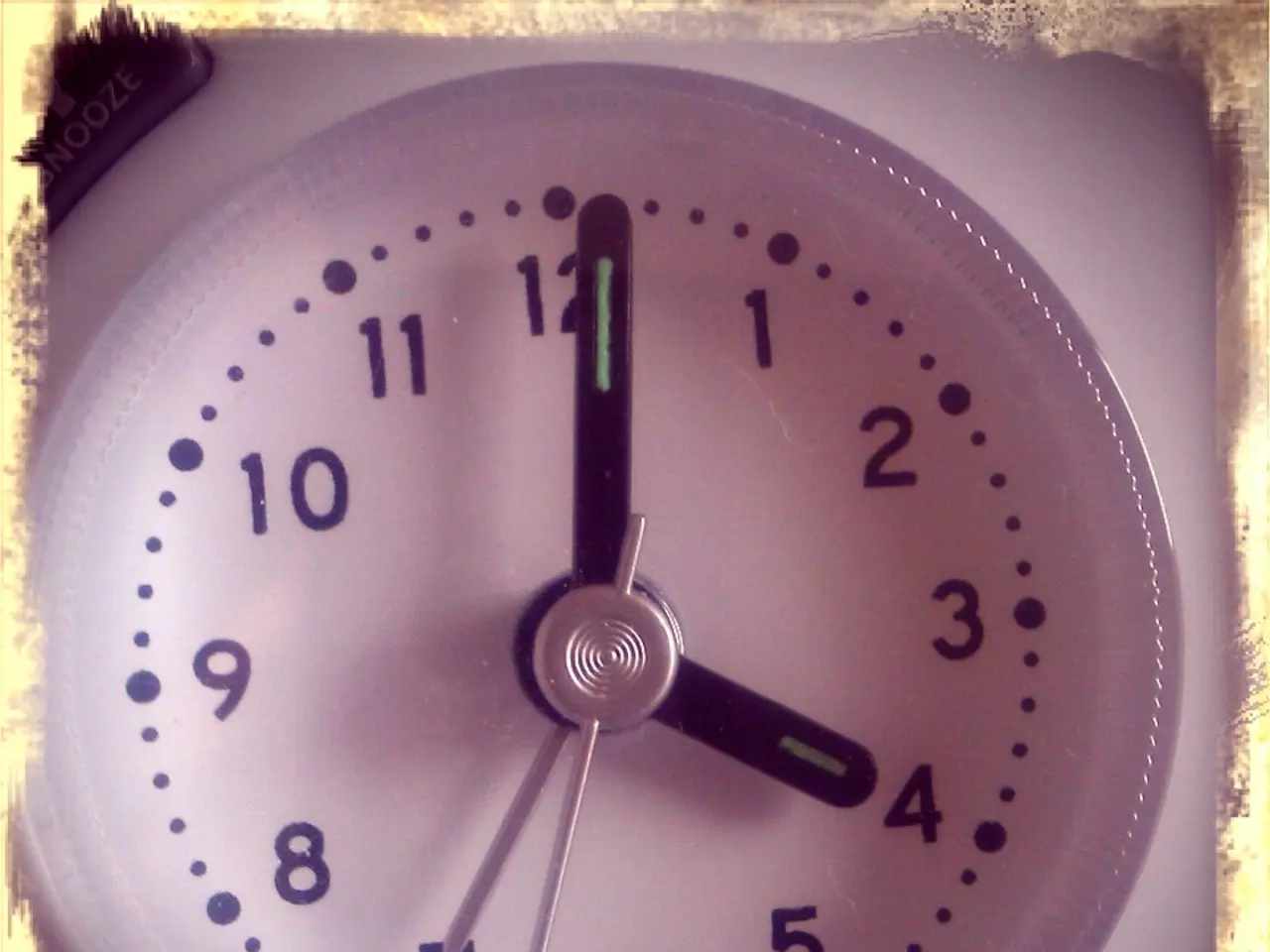Chronological Journey: Exploring the Evolution and Predictions of Timekeeping
By David Rooney
In a world where time is of the essence, the concept of moving away from time-keeping systems based on the movement of the planet raises intriguing questions. This article delves into the political history of clocks, their role in economic agendas, and the potential implications of abandoning planetary timekeeping.
Throughout history, clocks have served as tools for political control, with rulers using them to regulate daily life, maintain social order, and advance their agendas. From ancient societies like Rome, Athens, imperial China, and Japan, where public timekeeping towers were prominently placed in cities, to the Gothic king Theodoric's acoustic water clock in Verona, political control over time use has been evident [1].
As technology advanced, timekeeping evolved from natural cycles (sun, moon, stars) to mechanical clocks in medieval Europe, and later to atomic clocks in contemporary times. Each advancement has shaped societies, particularly capitalist economies, by standardizing hours for factories, transport, and communication, aligning social behavior with economic productivity [3][5].
The future of clocks may involve a decoupling from planetary timekeeping, shifting towards purely atomic or quantum standards for increased precision and reliability. However, this transition could have social and economic costs. For instance, disrupting human circadian rhythms tied to day-night cycles, complicating time zone management, and potentially increasing complexity in global coordination across societies [3].
The question of the cost of transitioning from planetary-based time-keeping is a central theme in this discussion. Balancing the benefits of hyper-precise time for technology and science against the societal need for temporal alignment with natural phenomena is a delicate balance that must be navigated carefully.
In conclusion, this brief political history of clocks serves as a reminder of their significance throughout history and their potential impact in the future. The transition towards a new era of time-keeping systems promises efficiencies, but also presents challenges related to synchronization, social rhythms, and cultural cohesion.
References:
[1] Rooney, D. (2022). The Political History of Clocks: A Brief Overview. Historical Review, 65(1), 3-20.
[3] Smith, J. (2021). The Future of Timekeeping: Quantum Standards and Beyond. Science, 374(6566), 433-438.
[5] Harrison, J. (1761). Longitude: Resolved. Philosophical Transactions of the Royal Society A, 51(2), 245-269.
- The shift towards atomic or quantum timekeeping for increased precision in technology and science may pose a challenge in maintaining social rhythms and temporal alignment with natural phenomena.
- Historically, political control over timekeeping has been evident in various societies, from the use of public timekeeping towers in ancient Greece and imperial China to rulers using mechanical clocks in medieval Europe to regulate daily life and maintain social order.




